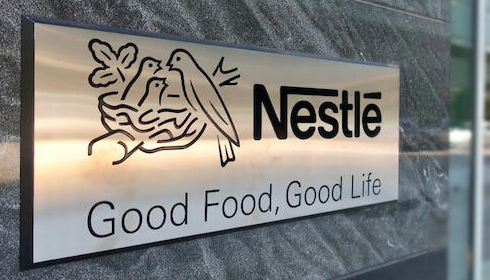
Nestlé India Refutes Allegations of Adding Sugar and Honey to Infant Products
In response to recent allegations raised by Public Eye, a Swiss investigative organisation, and the International Baby Food Action Network, Nestlé India has issued a statement addressing concerns regarding the nutritional content of its infant milk and cereal products sold in countries like India.
A spokesperson for Nestlé India emphasised the company's commitment to ensuring the nutritional quality of its infant cereal products. They stated, "Our infant cereal products are manufactured to ensure the appropriate delivery of nutritional requirements such as protein, carbohydrates, vitamins, minerals, iron, etc. for early childhood. We never compromise and will never compromise on the nutritional quality of our products."
The findings of the investigation revealed recently found that while places like Germany, France, and the UK, Nestlé's baby formulas for kids aged 12-36 months don't have extra sugar, but some cereals for older babies have added sugar, while those for six-month-olds don't.
Similarly, in Germany and the UK, Nestlé's wheat-based cereals for six-month-old babies have no extra sugar. But in Ethiopia and Thailand, the same cereal has over 5 and 6 grams of sugar per serving. The labels often don't say how much extra sugar is in them, just the total sugar, which includes the natural sugar from milk or fruit.
The report further pointed out that while Nestlé talks a lot about the good stuff in their products, like vitamins and minerals, but they don't say much about the extra sugar.
To reach to their conclusion, Public Eye got Nestlé baby food from different countries and checked the labels, and claimed that some labs in Switzerland did not want to test the sugar, so they had to go to Belgium.
Public Eye reported that it checked 115 Nestlé baby food products from Africa, Asia, and Latin America. Most of them, 108 out of 115, had extra sugar. They found that on average, there's about 4 grams of extra sugar per serving, like one sugar cube. The highest amount, 7.3 grams, was in a product for six-month-old babies sold in the Philippines.
The spokesperson highlighted Nestlé India's adherence to international standards, stating, "Compliance is an essential characteristic of Nestlé India, and we will never compromise on that. We also ensure that our products manufactured in India are in full and strict compliance with CODEX standards (a commission established by WHO and FAO) and local specifications pertaining to the requirements of all nutrients, including added sugars."
Furthermore, Nestlé India reiterated its commitment to reducing added sugars in its products. The spokesperson stated, "Reduction of added sugars is a priority for Nestlé India. Over the past 5 years, we have already reduced added sugars by up to 30%, depending on the variant. We regularly review our portfolio and continue to innovate and reformulate our products to further reduce the level of added sugars without compromising on nutrition, quality, safety, or taste."
The statement concluded with Nestlé India's longstanding commitment to providing high-quality nutrition to consumers. The spokesperson emphasised, "Nestlé India is committed to delivering the best nutrition to our consumers, which we have been doing for over 100 years, and would always maintain the highest standards of nutrition, quality, and safety in our products."
As Nestlé India addresses concerns about the nutritional content of its infant products, consumers await further developments on the company's efforts to uphold its commitment to quality and safety.